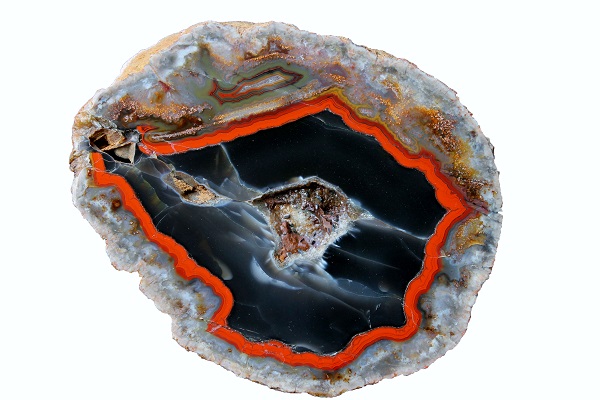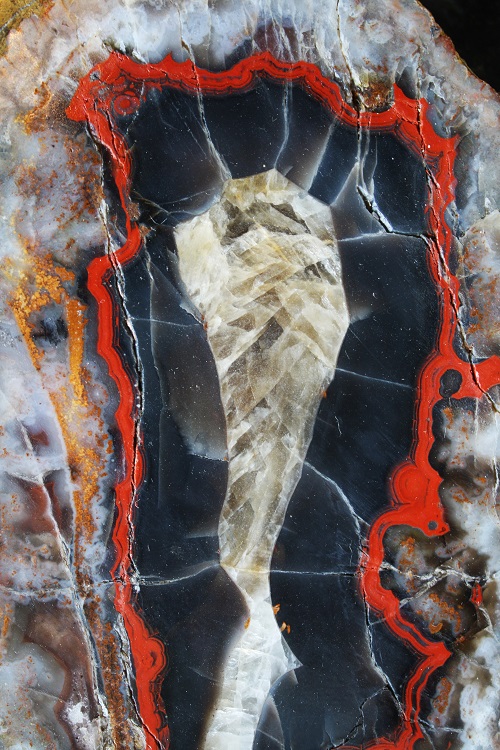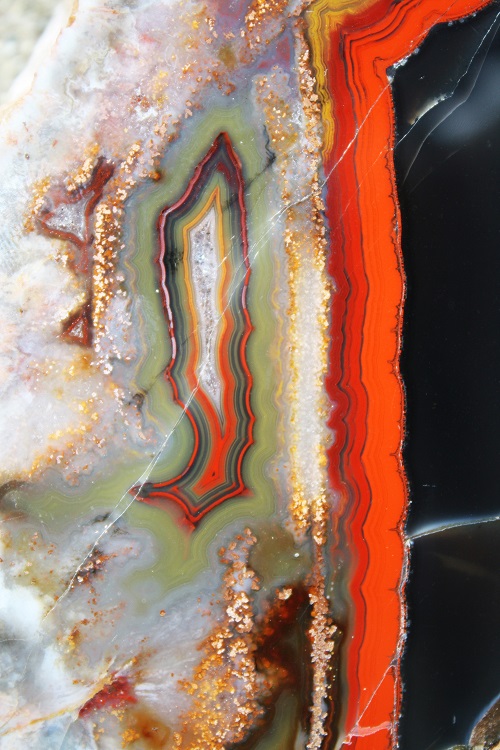Specimen of the month from the KGS collection: Kentucky agate
Kentucky agate is a beautiful mineral found in east-central Kentucky, first discovered in the 1970s, and a collector’s item. It is composed of chalcedony, a microcrystalline form of quartz, and has delicate and varying shades of colors arranged in various patterns in quartz nodules and geodes. There are several types of agates, labeled as banded, fortification, lace, plume, tubular, and moss. They generally form as the newly formed host rocks are undergoing changes in mineral content. Typically, the bands are irregular, curved, or in concentric patterns of various shades of red, orange, yellow, blue, black, and gray. The colors are usually related to trace elements in the quartz matrix such as iron, which gives a red or orange color, and manganese or calcium, which gives black or blue colors.
Beautiful specimens of red, black, yellow, and gray banded agate have been discovered in Estill, Jackson, Powell, Madison, and Rockcastle Counties. These Kentucky agates are derived from the Borden-Renfro Formation of Early Mississippian age and can be collected along some river drainages where these rocks are exposed to weathering.
More information on Kentucky agate is available in “Kentucky Agate: State Rock and Mineral Treasure of the Commonwealth,” by Roland McIntosh and Warren Anderson, of the KGS Energy and Minerals Section, and published by University Press of Kentucky.
In 2024, Kentucky agate was officially designated as Kentucky's State Gemstone, because of its use for personal adornment, display, or as an object of art.

View all archived specimen of the month from KGS collection


